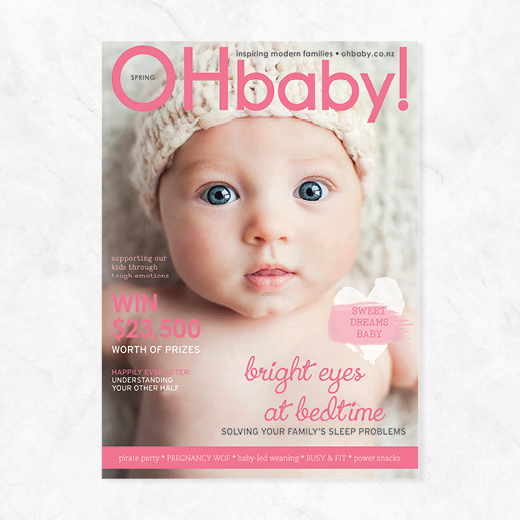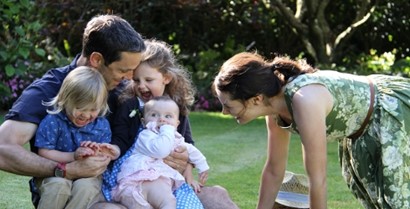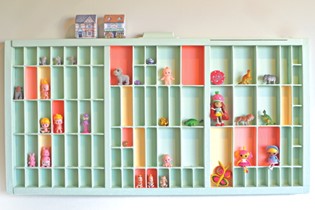How to adapt to your new role as a parent

Becoming a parent involves significant role change and struggling to adjust is not uncommon. Dr Melanie Woodfield discusses the challenges faced by both mums and dads when forging new identities as parents.
First pregnancies usually feature sweet and idealistic perceptions of how life is going to be with a new addition to the family. Sorry to disappoint, but usually those ideas are quite far from reality. Having a baby involves more adjustment than nappy tabs and waistlines. Yes, your average antenatal class gives a basic introduction to practical baby-related things, such as swaddling and breastfeeding. There is much discussion dedicated to what one can expect at the birth, but very little time is given to the bigger challenges of becoming a parent.
Some people have waited their entire lives to have children and find the adjustment easy. Many though have forged careers or are in training and are therefore having babies later in life. For many, performance targets, KPIs and reporting have become part of the fabric of how we assess our worth as individuals. Adding one baby, and subtracting one workplace can equal one unsettled parent. It’s pretty common to feel that the daily grind with a baby isn’t enough. That the “work” isn’t meaningful. That we’re not doing enough. That this can’t possibly be all there is. And then come the waves of guilt at not being completely fulfilled and satisfied at all times. News flash: this is all normal. Another thing – if all the mums you meet say they’re completely fulfilled all the time, they’re fibbing. It’s normal to be pretty flummoxed for a while after your bundle of joy arrives.
In the early days of having babies, I remember having earnest Q and A sessions with close friends about, of all things, how they did their housework. Did they do a little bit each day? Vacuum on Tuesdays perhaps? Or did they save it all up and have a big sanitising session on a Friday? I even (to my shame) drew myself a housework roster in a nice Word table, and glued it into my diary. Now I do have tendencies towards being slightly pedantic (there are other words for pedantic) towards housework. But, what prompted this flurry of concern wasn’t the housework. It was my new role of being a stay-at-home-mum. I’d gone from working full-time in a demanding role, and only having time for housework on a Saturday morning. Now, my week stretched ahead with little structure (aside from feeding a baby), no clear expectations and certainly no one to give me a bonus if I did a good job. We all respond differently to change, uncertainty and discomfort. I roster and write lists.
Adjusting your mindset
Sometimes having a baby brings values into conflict for a period of time – perhaps you value being the type of employee who is ambitious and driven, and the type of mum who is always available. Or perhaps you hold strong, conflicting ideas about what staying at home means to you (lazy or fulfilled?). These powerful ideas can produce a radio station of thoughts in your mind.
It can be hard to get on with life when there’s constant radio static in your head. We try so hard to be fulfilled, and then struggle with a sense of guilt that we’re not. Loud thoughts and feelings intrude into moments we feel we should be enjoying, and can lead to exhaustion and despair. The good news is that it doesn’t have to be that way. There are powerful psychological techniques that help us work with the situation we’re in, rather than being pushed around by unhelpful thoughts and feelings.
Firstly, tune in to your thoughts. Chances are, immediately before you felt a change in your mood, a thought will have flitted through your mind. Your thoughts might be along the lines of “I’m not happy”, “I wish I was at work”, “This is pointless”, “I’m lazy” or any number of different ideas. But, thoughts are just thoughts. They’re not always the truth, even if they feel like they are. They tend to be old ideas that keep circulating in our mind and fuelling feelings. It’s important to know that your thoughts don’t define you. Your actions do. And, despite a snowstorm of unhelpful thoughts drifting through your mind, it’s still possible to act in a way that’s in keeping with some very important things – your values. For example, it’s possible to be a nurturing and warm mum, using gentle touches and lots of eye contact with baby, even while having thoughts like “I feel so unfulfilled”.
Obviously, if you’re keen to live a more value-centred life, it’s important to figure out what you do value. Some time ago, happiness researchers were finding parents of under-three-year-olds to be some of the most unhappy people around! That is, until they started including questions in their surveys that tapped in to meaning and purpose. We can experience lots of frustration and boredom, but if overall our life is aligned with what matters to us, then we’re pretty happy. There are great tools available for helping you figure out what you value. Try Russ Harris’ Confidence Gap Worksheets on his website actmindfully.com.au. You might value responsibility, love, authenticity, compassion, helpfulness… the list is almost endless.
Remember – the goal is not to stop having negative thoughts. Everyone has them. The goal is to change your relationship with your thoughts, and think flexibly rather than getting stuck. But most of all, to act according to what’s important to you, in spite of the thoughts. Imagine you’re a bus driver. On your bus are a whole heap of passengers (thoughts and feelings) who are being demanding, intrusive, distracting, critical, and shouting directions at you. It is possible to allow these passengers to call out and do what they do, and still keep your attention focussed on the road ahead, towards the direction of your goals.
Let’s hear it for the boys
Most new mothers will have joined a coffee group of women where, over home baking and decaffeinated coffee, you’ll reminisce about lunch breaks and having time to have a shower. But men often find it harder to find support. Studies have shown that men tend to have smaller social networks than women, and are more reliant on their partners for support with processing and making sense of major life events, like having a baby.
One area where things can come unstuck for men is in the workplace. Parenthood can be polarising for men’s careers. Some men feel immediately connected to baby and, if they haven’t already, re-structure their working lives so that they can drop everything on the dot of five to rush home and plunge their hands into the bath water. On the flip side, men sometimes feel a bit like a third wheel – like they’re not doing things right. They start to work longer and longer hours, and when they are at home feel stressed and out-of-place.
It used to be that a man was a good father if he patted his son on the head. Fathers were breadwinners, and mothers were child raisers. These days, expectations have changed. Men are expected to be actively involved in their children’s lives, as well as (often) being the main income earners. They’re coaching soccer on Saturdays while simultaneously soothing disgruntled clients. Author Kyran Pittman has some interesting observations on dads in her book Planting Dandelions. She writes that her husband and many dads in his generation who grew up in the seventies and eighties are “having to improvise modern fatherhood without any kind of useful precedent.” Her husband argues that he’s far more involved with their kids than his father was with him. She has some sympathy, but tells him “it’s still not enough.”
A struggle faced by a number of men is the reality that their partner earns more than they do, and it makes more sense for her to work. Or perhaps, he’s more drawn to hands on child-rearing, and she’s desperate to get back to the office. It’s an urban myth that women are the only ones who can care for kids. Research tells us that very young children need consistent, warm, responsive care from a small handful of key, constant people. These people don’t necessarily need to wear skirts. Dads bring so very much to the table when it comes to raising children. They’re often less inclined to helicopter-parenting, and more inclined to allow kids to make their own mistakes. Having said that, women have breasts for a reason. Whether we choose to bottle or breast feed, our bodies have been designed to draw us physically close to our babies during the crucial early months and years, which is important to keep in mind.
Admittedly, this article contains some sweeping generalisations about men and women. We’ve come a long way as a society, but when it comes to young children, we still hold fairly firm stereotypes about roles. It’s often true though that regardless of gender, both men and women struggle to adjust to their changed roles after a baby is born. Think about how to strengthen your relationship with your partner, to support one another in adjusting once baby arrives. Dwelling on the thought that your partner has it easier than you can be very destructive in a relationship so force that sentiment to sit at the back of the bus, and drive on towards togetherness, respect, and strength as a couple.
Tips for coping with your new role
• See the first few months (or years) as a period of adjustment. It’s natural to grieve the loss of the lifestyle you had. Go easy on yourself. Dial down those expectations.
• There’s an old saying that your home should only contain things that are beautiful or useful. That sentiment holds true for friendships. Choose to spend time with people who either get where you’re at or are willing to try.
• Consider the advice you’d give a close friend in this situation (we’re usually kinder to others than ourselves).
• Remember, as soon as you think you’ve got it figured out, it’ll change. And that’s okay.
• For further reading, The American Psychological Association has an interesting article on their website (apa.org)“The Changing Role of the Modern Day Father”
• Search YouTube for Russ Harris’ inspiring clips about happiness.
Dr Melanie Woodfield is a child and adolescent clinical psychologist in Auckland, and mum to two boys. She no longer has a housework roster in her diary. And she vacuums on a Thursday, in case you’re interested.

AS FEATURED IN ISSUE 27 OF OHbaby! MAGAZINE. CHECK OUT OTHER ARTICLES IN THIS ISSUE BELOW

















